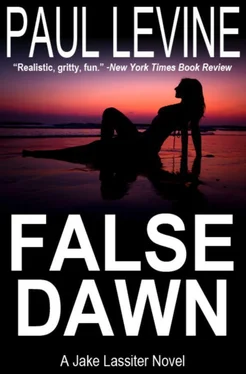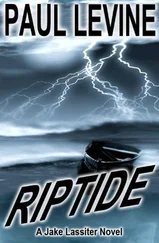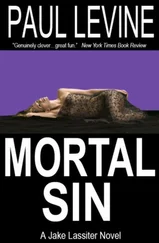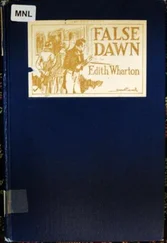Paul Levine - False Dawn
Здесь есть возможность читать онлайн «Paul Levine - False Dawn» весь текст электронной книги совершенно бесплатно (целиком полную версию без сокращений). В некоторых случаях можно слушать аудио, скачать через торрент в формате fb2 и присутствует краткое содержание. Жанр: Криминальный детектив, на английском языке. Описание произведения, (предисловие) а так же отзывы посетителей доступны на портале библиотеки ЛибКат.
- Название:False Dawn
- Автор:
- Жанр:
- Год:неизвестен
- ISBN:нет данных
- Рейтинг книги:3 / 5. Голосов: 1
-
Избранное:Добавить в избранное
- Отзывы:
-
Ваша оценка:
- 60
- 1
- 2
- 3
- 4
- 5
False Dawn: краткое содержание, описание и аннотация
Предлагаем к чтению аннотацию, описание, краткое содержание или предисловие (зависит от того, что написал сам автор книги «False Dawn»). Если вы не нашли необходимую информацию о книге — напишите в комментариях, мы постараемся отыскать её.
False Dawn — читать онлайн бесплатно полную книгу (весь текст) целиком
Ниже представлен текст книги, разбитый по страницам. Система сохранения места последней прочитанной страницы, позволяет с удобством читать онлайн бесплатно книгу «False Dawn», без необходимости каждый раз заново искать на чём Вы остановились. Поставьте закладку, и сможете в любой момент перейти на страницу, на которой закончили чтение.
Интервал:
Закладка:
“Nothing!” he exclaimed, pointing to his empty right sleeve flapping in the breeze.
It was a silly joke, and so out of character for the dour Cuban that it convulsed me. And then him. Maybe it had been the tension of the day. I didn’t know. We stood there together, sharing the moment of a Caribbean sunset, laughing into the wind. He was puffing a cigar now, its smoke whipping away.
I watched the setting sun, which appeared off the bow. “We’re angling to the west.”
“ Si.”
I tried to figure how many miles we had covered. If I kept this up, I was going to qualify for a Sea Scout badge. “We’re headed to Miami!”
Soto didn’t say a word.
“You pulled a double whammy. You’re taking the art to Miami. You’ve got Foley under house arrest or something. All that Castro-as-demigod was your cover. You’re recovering the money and the art. You’re still a CIA operative.”
Still, he was silent.
A strange bundle of emotions. Anger. I’d been double-crossed. The government had never meant to honor its deal with Foley, and I was part of the deception, even if I didn’t know it. But just a bit of exhilaration, too. A sense of awe at how slickly they’d done it, turned the tables on the biggest thief in history. To say nothing of his formerly ten-million-dollar lawyer.
“We are headed to Miami,” Soto said. “But if the rest of your theory is correct, if the U.S. recovers the money, why did Fidel assist us? Why do we have the use of Cuban troops and a Cuban crew, and why were we permitted to leave the island when Foley’s deal was to share the riches with the Castro government?”
I didn’t know. What was it Foley had said? That I was half right, as usual. “Maybe the State Department made a deal,” I guessed. “Castro gives up the money and the art, and the U.S. drops the trade embargo.”
“Politically infeasible,” Soto said. We stood quietly another moment, listening to the slappity-slap of the waves against the hull. “Think. You have come to know me. What is it I would do with the full consent of Fidel?”
“I can’t figure it out. If you’re returning the art-”
“I never said I was returning it.”
He saw I didn’t understand, so he motioned me to follow him. We circled the deck and took a ladder into the hold. Below deck, the steel bulkheads rattled with engine vibrations, and the air stank of sweat, grease, and fuel. Soto turned a wheel at a steel hatch, and we stepped into the cargo compartment. One of the crewmen, a skinny, olive-skinned man who hadn’t shaved this week, sat at the wooden table. What looked like an oversize car battery was at his feet, a simple electrical panel in front of him. On the deck was a spool of white wire. Or rather, half a spool. The rest was strung across the deck and around the steel containers that held an unfathomable fortune. The other end was connected to the battery, which, in turn, was connected to the electrical panel. The crewman had a shotgun in his lap.
I know what it was, but I couldn’t say it. Soto did me the favor. “Plastiques.”
“Why?”
He didn’t answer, but he didn’t have to. He was right. I had come to know him.
I could make a revolutionary statement the world would never forget.
It hadn’t meant anything then, but it did now. The crewman shifted in his chair and cradled the shotgun. I listened to a pump below us and Soto’s breathing next to me.
“I was wrong,” I admitted. “I figured there were only three choices: Give the art to the Americans, to the Russians, or to Fidel. I never thought you’d destroy it. But for you, it really is a double whammy. Castro gets the two hundred million to buy bicycles and bread, and you get to make the greatest revolutionary statement of all time.”
“ Lo entiendes? So you understand?”
“Maybe not all of it. But it has something to do with destroying objects of bourgeois fascination. While the peasants were starving, the nobility had jewelers making diamond-studded clocks. Am I on the right track?”
“Yes, but that is not all. With one fiery blast, I will show the world the value of its gilded objects. I will blow asunder the worthless canvas and meaningless gold. I will turn your silver chalices and precious pearls into shrapnel. I will take five hundred years of decadence and vanity and turn it to silt at the bottom of the sea. And the two of us will join it there.”
Oh.
Just then, scuttling a couple billion dollars in baubles and adornments didn’t seem that important. Losing the semiprecious hide of Jacob Lassiter, ballplayer-turned-barrister, was another matter.
Footsteps above us. Two crewmen clambered down the ladder and stepped into the hold. Swarthy, lean men in their twenties in jungle fatigues wearing sidearms. Soto spoke to them in Spanish, then turned to me. “They will protect you until we reach our destination,”
Protect me. Communists and fascists alike always have such a cute way of twisting words into their antonyms.
The four of us climbed back to the top deck in silence. On the deck, my two protectors maintained a polite distance of five yards. The nighttime breeze had turned cool, so why was I sweating? The air was thick with diesel fumes. Again, Soto and I stood at the rail. From overhead, suddenly, a whompeta-whompeta drew our eyes skyward. A helicopter, its searchlight aimed at us, scanned the freighter. From the bridge, a crewman was shouting in Spanish at Soto, who simply nodded. My bodyguards edged closer.
With the wind from the east and the copter approaching from the west, I hadn’t heard it until it was nearly above us. Descending now. My first thought: the Coast Guard to the rescue. Or maybe Army Special Forces, rappelling down on undulating ropes, armed with automatic weapons. Hey, I’d settle for a Miami Beach SWAT team. But it wasn’t the authorities. A private chopper. Lower now, I saw it clearly. Beige, rounded nose. I’d seen it before. It used to sit on the deck of Yagamata’s yacht.
The noise deafening now, the helicopter was just a few feet off the stern. I squinted my eyes against the blast of wind. When it touched down, a door to the passenger cabin opened and out stepped Matsuo Yagamata. He turned back toward the cabin. A hand reached out, and he grabbed it. The hand belonged to Lourdes Soto, who hopped gracefully onto the deck of the freighter. The two of them ducked under the whirling blade and walked toward us. A moment later, the engine revved, and the helicopter took off, veering to the west, and disappearing into the night.
Lourdes looked toward me and then directly at her father. She was wearing an all-white warm-up suit and running shoes. Her dark hair was windblown. Yagamata, short and chunky in a dark suit, looked tense. As he approached, he shot nervous glances at the armed crewmen. When Yagamata and Lourdes reached us, there was a brief moment of silence. Soto looked impassively at them both, then angrily shouted, “ Lourdes, no deberias estar aqui! ’”
“ Por que no? How else would I save you?”
Yagamata looked Soto squarely in the eyes. “Senor Soto, you have proved your point. You are a great patriot. But what you intend is a great waste of both human resources and irreplaceable objects of beauty.”
Soto turned to his daughter. “You should not have told him.”
“I did it to save you, Papi.”
It hit me then. Lourdes knew. She knew everything, including the fact I’d be on board.
Yagamata reached inside his suit coat and withdrew a black velvet pouch from a pocket. Loosening a drawstring, he poured something into his open palm. It looked like a thick gold chain. “Have you ever seen such magnificence?” he asked, holding it up in the light from the bridge.
The surprise from inside the Trans-Siberian Railway Egg. Yagamata’s favorite toy, the little gold train by Faberge. It sparkled in the glare of the deck lights, the intricate details of the engine and cars nearly surreal.
Читать дальшеИнтервал:
Закладка:
Похожие книги на «False Dawn»
Представляем Вашему вниманию похожие книги на «False Dawn» списком для выбора. Мы отобрали схожую по названию и смыслу литературу в надежде предоставить читателям больше вариантов отыскать новые, интересные, ещё непрочитанные произведения.
Обсуждение, отзывы о книге «False Dawn» и просто собственные мнения читателей. Оставьте ваши комментарии, напишите, что Вы думаете о произведении, его смысле или главных героях. Укажите что конкретно понравилось, а что нет, и почему Вы так считаете.












